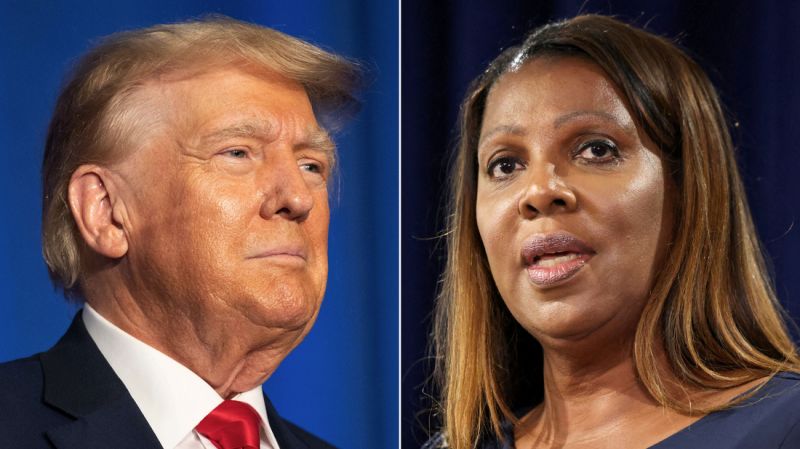The New York attorney general’s office has raised concerns about the $175 million bond posted by Donald Trump in a civil fraud case. Originally, Trump was required to post $464 million, but a New York appeals court lowered the amount. The attorney general has requested more information to ensure the financial soundness of the bond. Knight Specialty Insurance Company agreed to underwrite the bond, with Trump providing $175 million in cash as collateral. The attorney general’s office has asked for additional details within 10 days or the bond may not be considered valid.
Lawyers familiar with bonds support the attorney general’s office’s request for information regarding the collateral used to support the bond. Additionally, Knight Specialty Insurance Company and its parent company are not authorized to issue surety bonds in New York, raising concern about the lack of regulation. The attorney general’s office is seeking more clarity on the underwriting process, given the absence of a certificate from the New York Department of Financial Services. By posting the bond, Trump prevented the enforcement of the judgment by the attorney general’s office, as he is appealing the decision that found him liable for fraud.
Trump’s attorney has accused the attorney general’s office of intentionally causing trouble for the former president. This challenge marks another development in the ongoing legal battle between Trump and the attorney general’s office. The attorney general has also requested more direct involvement in the bond negotiations and for the independent monitor overseeing the Trump Organization to share information with all parties involved in the case. Additionally, the attorney general has asked for a deeper examination of Allen Weisselberg’s guilty plea, who admitted to lying during the state’s investigation into Trump’s finances.
The attorney general’s office sought more transparency and information regarding the bond negotiations and the financial status of Knight Specialty Insurance Company. Lederman emphasized that underwriting a bond for more than 10% of a company’s surplus cash is not allowed in New York. The attorney general’s office is focused on ensuring the validity and financial soundness of the bond to protect potential creditors in the fraud case. The challenge from the attorney general’s office adds complexity to the legal proceedings and underscores the importance of regulatory oversight in such matters.
Trump’s decision to post the $175 million bond allowed him to delay the enforcement of the judgment by the attorney general’s office. The continued legal battles and challenges from the attorney general’s office highlight the contentious nature of the civil fraud case against Trump. The attorney general’s office is determined to validate the bond and ensure that all necessary financial information is provided for a fair and transparent legal process. The involvement of Knight Specialty Insurance Company and the lack of regulation from the New York state authorities add further complexity to the case. The upcoming hearing on April 22 will provide more clarity on the future of the bond and the ongoing legal proceedings.


